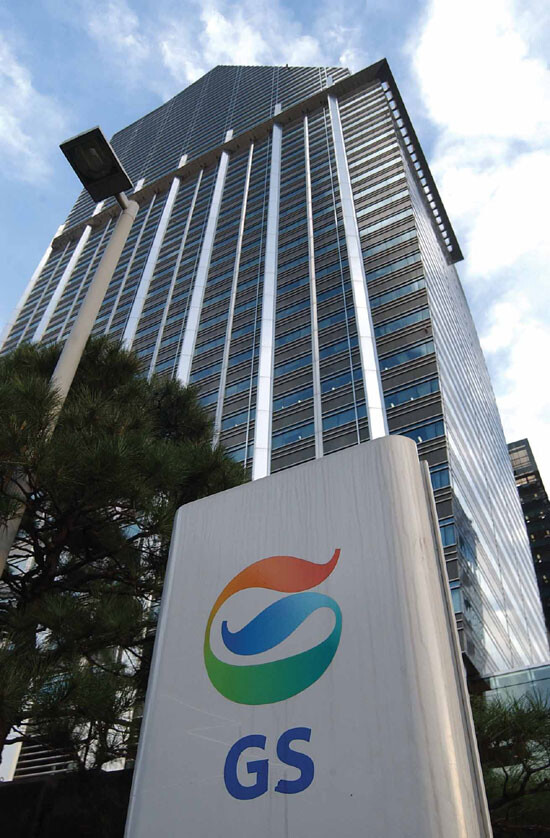hankyoreh
Links to other country sites 다른 나라 사이트 링크
Half of South Korea’s conglomerate heirs marry within chaebol community

A new survey has found that up to half of the second generation (children) from chaebol families married partners from within the chaebol community. While marriages into political or official families accounted for only 7.4%, a one-third reduction from their parents’ generation.
The survey, conducted by corporate evaluation company CEO Score and released on Sept. 27, looked at the marriages of family members in the top 100 Korean conglomerates headed by a single figure (including divorces and second marriages), finding that pairings between individuals within the corporate world accounted for almost half of all marriages in both the first and second generations of chaebol families. The figures for the first and second generations were 49.3% and 52.5% respectively.
It was discovered that GS had in-law relations with seven other chaebol groups, the highest number among the chaebols surveyed; Kumho Petrochemical, SeAH, Taekwang, LIG, JoongAng Ilbo, ASEA and Sampyo. LS had in-law relations with six other groups including Hyundai Motors, Doosan, OCI, BGF, Sampyo and Sajo, while Doosan was connected to four other groups (LS, Kolon, LIG and SPC) through marital relations.
A number of the chaebols had in-law relations with three other groups including Hyundai Motors, Kumho Asiana, Dongkuk Steel, LIG, Aekyung and Sampyo, while OCI, SPC, Daesang, Taekwang, Iljin and ASEA were each connected to two other groups. For Samsung, the marriage between vice-chairman Lee Jae-yong and Lim Se-ryung (from the Daesang Group) is the only case of marriage between chaebol families, but the marriage between Chairman Lee Kun-hee and Hong Ra-hee was treated as a union with political or official families.
Marriages between chaebol families and ‘powerful’ political or official families reduced by a third between the first and second generations. The figure was 23.4% for the first generation, but only 7.4% for the second generation. It appears that the gradual erosion of cozy relations between politics and business has also loosened the marital bonds that held these families together.
Meanwhile, the proportion of marriages between those in the corporate world and members of the general public doubled between the two generations, rising from 12.7% to 23.5%.
By Choi Hyun-june, staff reporter
Please direct comments or questions to [english@hani.co.kr]

Editorial・opinion
![[Column] Park Geun-hye déjà vu in Yoon Suk-yeol [Column] Park Geun-hye déjà vu in Yoon Suk-yeol](https://flexible.img.hani.co.kr/flexible/normal/500/300/imgdb/original/2024/0424/651713945113788.jpg) [Column] Park Geun-hye déjà vu in Yoon Suk-yeol
[Column] Park Geun-hye déjà vu in Yoon Suk-yeol![[Editorial] New weight of N. Korea’s nuclear threats makes dialogue all the more urgent [Editorial] New weight of N. Korea’s nuclear threats makes dialogue all the more urgent](https://flexible.img.hani.co.kr/flexible/normal/500/300/imgdb/original/2024/0424/7317139454662664.jpg) [Editorial] New weight of N. Korea’s nuclear threats makes dialogue all the more urgent
[Editorial] New weight of N. Korea’s nuclear threats makes dialogue all the more urgent- [Guest essay] The real reason Korea’s new right wants to dub Rhee a founding father
- [Column] ‘Choson’: Is it time we start referring to N. Korea in its own terms?
- [Editorial] Japan’s rewriting of history with Korea has gone too far
- [Column] The president’s questionable capacity for dialogue
- [Column] Are chaebol firms just pizza pies for families to divvy up as they please?
- [Column] Has Korea, too, crossed the Rubicon on China?
- [Correspondent’s column] In Japan’s alliance with US, echoes of its past alliances with UK
- [Editorial] Does Yoon think the Korean public is wrong?
Most viewed articles
- 1‘We must say no’: Seoul defense chief on Korean, USFK involvement in hypothetical Taiwan crisis
- 2N. Korean delegation’s trip to Iran shows how Pyongyang is leveraging ties with Moscow
- 346% of cases of violence against women in Korea perpetrated by intimate partner, study finds
- 4[Column] Park Geun-hye déjà vu in Yoon Suk-yeol
- 5‘Weddingflation’ breaks the bank for Korean couples-to-be
- 6Will NewJeans end up collateral damage in internal feud at K-pop juggernaut Hybe?
- 7Amnesty notes ‘erosion’ of freedom of expression in Korea in annual human rights report
- 8[Interview] Dear Korean men, It’s OK to admit you’re not always strong
- 9Korean government’s compromise plan for medical reform swiftly rejected by doctors
- 10[Editorial] Japan’s rewriting of history with Korea has gone too far